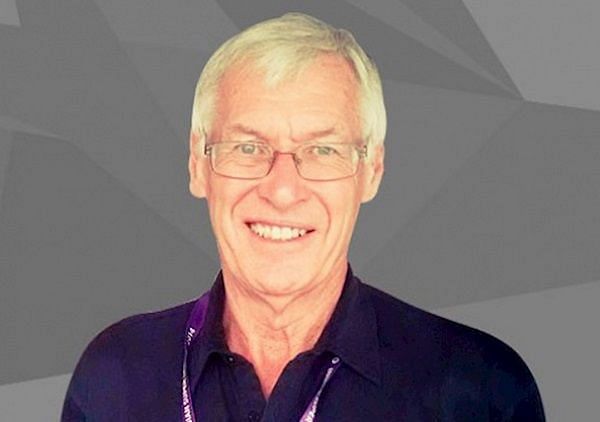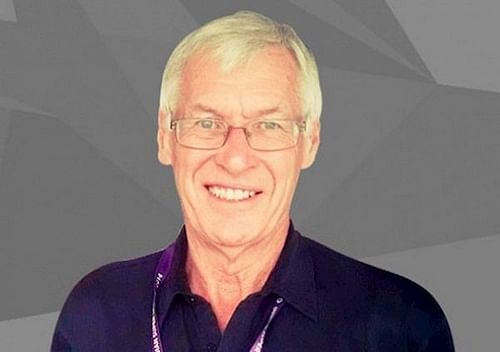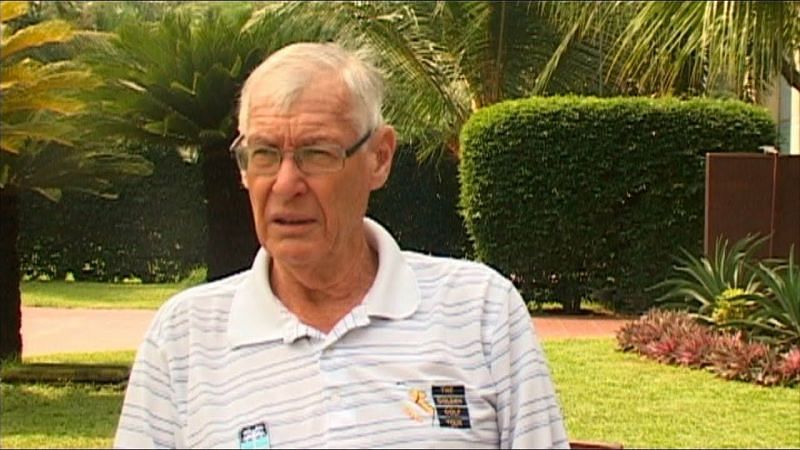
ISL 2018-19: I love Indian national anthem more than my own country's, says commentator John Helm

The thrill of watching a football match, or for that matter any sport, on Television is multiplied by the energy that a commentator brings to the audience.
And in this era, there is no one better than John Helm, who has over 25 years of experience and is overseeing the Indian Super League (ISL) matches this season.
The 70-year-old has lent his voice to many sports even apart from football like golf, cricket, and rugby. He has commentated live matches of the European Championships, UEFA Champions League and FIFA World Cup, making him one of the most recognisable voices in the business.
In an exclusive interview with Sportskeeda, Helm talks about the broadcasting industry, commentating on ISL matches and more.
Sportskeeda: How did you get involved in the broadcasting business? Was sports broadcasting your first job?
John Helm: My first job was in a newspaper when I was 17. When I was a tiny little boy, I used to dribble a tennis ball to school, which was around half a mile away, and do commentary all along. I used to pretend to be Stanley Matthews (legendary English footballer) while dribbling, and my nickname was Stan.
One of my first teachers, Mrs Donwell, used to joke that you are going to grow up to be a sports commentator. She thought that what I did was extremely funny. Slowly, I started commentating on matches in the schoolyard as well, which my friends really enjoyed.
However, I never really saw myself as a commentator when I was young. I saw myself as a journalist. I spent seven years on the weekly newspaper, covering courts and council meetings, and a bit of sports.
Then, I moved to the daily paper called Yorkshire Post and I was there for four years. I spent 11 years in the print media before I took up any broadcasting role. In fact, I was stunned when BBC asked me -- John Helm -- to join them. It was, and still is, one of the most famous broadcasting cooperation in the world.
I told myself that if I am going to be asked to do it, then I am going to do it well and as well as I possibly can. August 7, 1959, is the day I started work. I started working in radio in 1970. From my first day to the present day I have always given my best at everything I have ever done.
Therefore, I got into broadcasting via journalism and I really feel blessed as I feel I have the best job in the world. I sometimes feel like the luckiest man in the world to work for as long as I have -- almost 60 years now in the business.
Every day I wake up thankful that I have a job that I just adore.
"I wish to continue for another 60 years.

Sportskeeda: What are the major skills which you think are required for a sports broadcaster?
John Helm: I think you need to be a natural entertainer. You need to impart information which is useful for the listener or viewer. Hence, for that, you must be well read yourself. You have to have a strong voice. I have seen people whispering into the microphone, and that does not work at all.
You need to have the skill to listen to directors and producers but still keep talking at the same time. However, it is important that you bring colour. The pictures are already there on the television and it is vital that you say something which can improve on that.
However, saying that, each person needs to have their own individuality and the skills for broadcasting, per se, are not defined. As they say, 'One man's cup of tea may be poison for the other.'
Hence, some people like certain kinds of commentators while others do not. That is just a matter of individual preferences.
There is one thing which I find common in all good commentators -- self-belief and the fact that they love what they are doing. If they get fulfilment and enjoyment from what they are doing, then that automatically gets transpired to the public.
Sportskeeda: As a commentator, how much preparation does it take before you sit down to work on a match?
John: Every match that I do, it takes me an estimated five to six hours in preparation. I am old fashioned and meticulous. I write down the points. More modern commentators would use the internet more than I do. I do not use laptops or Ipads.
However, what I still firmly believe is that if I want to retain information, I have to write it down. I can then refer to those notes but thankfully I also have a good memory. I can still remember the names of every child from my school when I was five years of age.
The preparation part is also something I really enjoy. I spend hours and hours in hotel rooms doing the background work. I find it fascinating and rewarding as well.
If you have got something written down -- it might be a statistic of someone's birthday on the day he scores or if there is a goalie who scored 10 years ago in match and scores in the current match, which makes it only the 2nd goal in his lifetime -- all that research makes it worthwhile. It is something which you are appreciated for doing.
Sportskeeda: How has the experience been in commentating on Indian Football (I-League and ISL)?
John Helm: It has been a really rich experience. No matter where you go in the world, the football will be different. South American football is different to that in Europe and in Africa.
Likewise, Indian football has its own style. From the word go, when the teams come out for the national anthem, Indian football is a delight to watch. The Indian national anthem is my favourite by the way, way ahead than my own one. I always try and sing along.
I noticed the Romanian footballers, Lucian Goian, singing the Indian national anthem, and it was a delightful sight indeed. I congratulated him for doing it. Even I stand for the Indian national anthem when I am in the studio.
The football is different as compared to the rest of the world. I love seeing the emergence of new and young local talents through the Indian Super League. It has a rhythm to it -- how they adapt to life, living with some of the World's biggest superstars.
Even within India, the match experience is different in each state. A game in Kerala is different to the one in Delhi, which in turn is different from the one in Guwahati. However, the fans are just as passionate wherever you go.
I love identifying with the Blue Army, or the Yellow Army or whatever it (fan club) might be. Every stadium is different, every crowd is different, every game is different -- all these factors add to my fascination in the job I do.
Sportskeeda: How has Indian football progressed over the last few years?
John Helm: Indian football is definitely moving in the right direction. India are already up to 97 in FIFA Ranking. Some would say it is because of the standard of opposition. However, maintaining an unbeaten streak of 14 matches still speaks volumes of how the standard has improved.
I especially look forward to the U-16 football team, which recently made it to the quarterfinal of the AFC U16 Championship.
Hosting a major event like the FIFA U-17 World Cup has really given a lot of momentum to the sport. Even though the U16 team lost the quarterfinal by a solitary goal against a stronger opponent like South Korea, you could see that togetherness in them. The Indian colts were much stronger mentally than what was seen in the past.
I am also happy that the Indian team is going for the Asian Cup, which I am delighted to say that I will be hosting in the UAE as well. Now that tells you that something is happening for the good.
I have to say that I was extremely mortified when the Blue Tigers lost to Guam, a tiny little country, back in 2015, during the World Cup qualifiers. There are millions of players India has to choose from now, with many good talents coming from grassroots level programmes.
People like Sunil Chhetri have said the right things and improved the standing of Indian football. The fact that only Cristiano Ronaldo and Lionel Messi have scored more international goals than him is a tremendous statistic.
Sandesh Jhingan, Lenny Rodrigues, Rowllin Borges are some of the other exceptional players that come to my mind that are part of the future.
The U-17s, the U-20s -- all are getting better. The Indian team is performing with a much greater consistency which is probably seen for the first time since the golden era of Indian football.